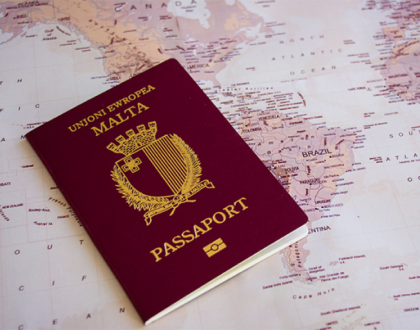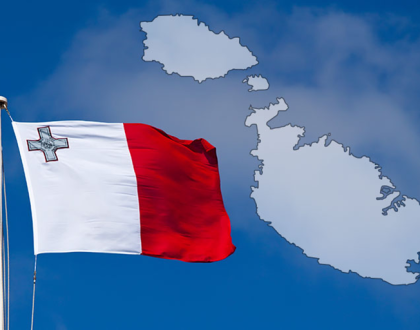Malta’s Business – Legal and Financial Waters

There's much to consider when exploring into #Malta's bustling #business environment, especially when it comes to navigating the intricate #legal and #financial waters. Understanding the #regulatory framework, tax laws, and financial obligations is crucial for the success of ventures in this Mediterranean hub. In this blog post, we will explore the key aspects of Malta's business scene and discuss how to effectively manage legal and financial challenges to thrive in the dynamic market.
Overview of Malta's Business Environment
Economic Landscape
The economic landscape in Malta is characterized by a strong focus on services, particularly in areas such as tourism, financial services, and information technology. The country has established itself as a hub for financial services, attracting numerous international companies due to its favorable tax regime and skilled workforce.
Key Industries and Growth Sectors
The key industries in Malta include tourism, financial services, manufacturing, and iGaming. These sectors have experienced significant growth in recent years, contributing to the country's economic development. With a strategic location in the heart of the Mediterranean and a business-friendly environment, Malta offers excellent opportunities for companies looking to expand their operations.
Businesses looking to establish a presence in Malta should consider these key industries and growth sectors to leverage the country's strengths and maximize their success in the market.
Legal Framework Guiding Businesses in Malta
Company Formation and Registration
Formation of a company in Malta involves adhering to the Companies Act and submitting the necessary documents to the Malta Business Registry. Companies must appoint a company secretary, maintain company books, and comply with annual filing requirements to ensure legal standing.
Regulatory Compliance and Governance
Regulatory compliance in Malta is overseen by entities like the Malta Financial Services Authority (MFSA) and the Malta Gaming Authority (MGA). Businesses need to adhere to sector-specific regulations, implement anti-money laundering processes, and uphold good governance practices to operate legally.
Businesses in Malta must conduct thorough due diligence and risk assessments to ensure compliance with local laws and regulations. Regular audits, transparent reporting, and board oversight are crucial in maintaining regulatory compliance and fostering trust with stakeholders.
Financial Infrastructure
Banking and Financing Options for Businesses
To succeed in Malta's business scene, companies must explore the available banking and financing options. Local and international banks offer tailored services to meet the diverse needs of businesses operating in the region. From business loans to credit lines, companies have access to various financial tools to support their growth and expansion efforts.
Taxation Policies and Incentives
For businesses looking to establish operations in Malta, understanding the taxation policies and incentives is crucial. Malta offers an attractive tax regime with competitive corporate tax rates, tax credits, and incentives for specific industries. By leveraging these benefits, businesses can optimize their tax planning strategies and enhance their overall profitability.
Plus, Malta's tax system also includes double taxation treaties with numerous countries, providing businesses with the opportunity to minimize tax liabilities and facilitate international business transactions. This, combined with a robust regulatory framework, makes Malta an attractive destination for businesses seeking a favorable tax environment.
Challenges and Opportunities
Navigating Bureaucratic Hurdles
With Malta's complex regulatory framework, businesses often find themselves facing various bureaucratic hurdles. Navigating through the legal and financial requirements can be time-consuming and challenging, requiring a thorough understanding of the local laws and procedures.
Strategies for Success in Malta's Dynamic Market
With the right approach, businesses in Malta can harness a multitude of opportunities in the dynamic market. Adapting to the changing landscape, staying informed about market trends, building strong relationships with local partners, and having a proactive attitude are key strategies for success.
Plus, keeping abreast of industry developments, networking with other professionals, and seeking guidance from legal and financial experts can provide businesses with a competitive edge in Malta's vibrant business scene. Embracing innovation and being open to collaboration are also important factors for thriving in this dynamic market.
Summing up
Following this insightful discussion on Malta's Business Scene – Navigating Legal and Financial Waters, it is evident that the Maltese business environment offers various opportunities for entrepreneurs, but also poses challenges in terms of navigating complex legal and financial waters. Understanding the regulatory framework and seeking professional advice are crucial for success in Malta's thriving business sector.
FAQs
What are the key industries driving Malta's economic growth?
Malta's economy is driven by key industries like tourism, financial services, manufacturing, and iGaming. These sectors have experienced significant growth, contributing to the country's overall economic development.
What legal steps are required to start a business in Malta?
Starting a business in Malta requires adhering to the Companies Act, registering with the Malta Business Registry, appointing a company secretary, and maintaining company books. Compliance with annual filing requirements is also essential.
How does Malta's tax system benefit businesses?
Malta offers a competitive tax regime with favorable corporate tax rates, tax credits, and industry-specific incentives. The country also has double taxation treaties with numerous countries, which helps businesses minimize tax liabilities.
What are the main challenges businesses face in Malta?
Businesses in Malta often face challenges such as navigating the complex regulatory framework, dealing with bureaucratic hurdles, and staying compliant with sector-specific regulations.
How can businesses succeed in Malta's dynamic market?
Success in Malta requires staying informed about market trends, building strong local partnerships, adapting to changes, and seeking expert legal and financial advice. Embracing innovation and collaboration are also key strategies.
Recommended Posts

Peter and Sons Expands with Light & Wonder
October 4, 2024

Legal Win for Malta’s Citizenship Program
October 4, 2024

Why iGaming Brands Choose Malta
October 4, 2024



